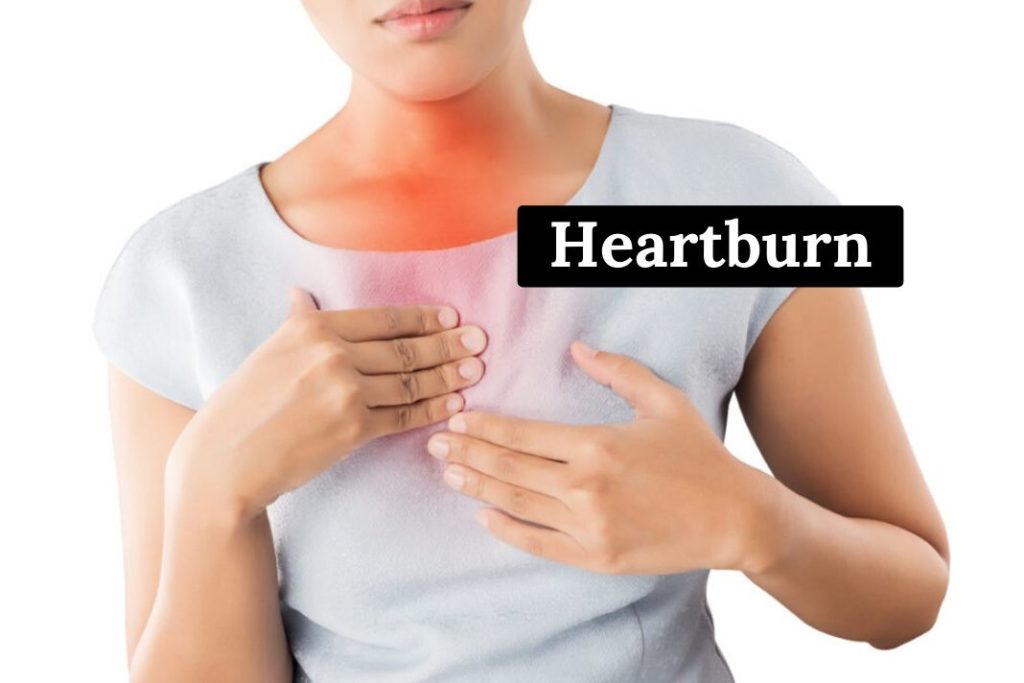Heartburn can have causes that aren’t due to underlying disease. Examples include spicy food, overeating, or tight clothing.
Table of Contents
What is heartburn?
Heartburn occurs when the acidic content of the stomach rises up the esophagus into the throat. Also known as acid reflux from the stomach. Most people have it at some point in their lives, in the form of burning or acid regurgitation.
What are the causes of heartburn?
Heartburn usually occurs after eating a large meal or drinking a lot of alcohol. Some people have it when they bend over or lie down. Its frequency varies from person to person. Most people have it very rarely; however, in other people, episodes of heartburn or acid regurgitation may appear daily or weekly.
Is heartburn dangerous?
Heartburn is bothersome and can be detrimental to the health of the sufferer. Sometimes persistent heartburn can cause esophagitis or inflammation of the lining of the esophagus.
In the worst case, esophagitis can be complicated by the appearance of ulcers, which can bleed, or by chronic anemia. Reflux esophagitis is sometimes also complicated by esophageal stricture (narrowing) from scars that appear when ulcers heal.
This narrowing of the esophagus can prevent swallowing. This situation is serious and requires immediate study and treatment(1).
How does stomach acid get into my throat?
The esophagus has a sphincter (muscle ring) at its bottom before it is inserted into the stomach. The diaphragm, which is the main muscle of respiration, and which separates the lungs from the stomach and other abdominal viscera, holds that sphincter in place, and the system functions as a one-way valve. Thus, under normal conditions it allows food to enter the stomach, but not the exit.
If this one-way valve doesn’t work properly, stomach acid can pass from the stomach into the esophagus. This tendency increases when the stomach contains large amounts of food or liquid, especially fat or alcohol, or when something is pressing on the stomach.
What conditions increase heartburn?
On many occasions the reasons why heartburn increases are unknown. In other cases, one of the following conditions may contribute:
Hiatus hernia
It is a disorder in which the upper part of the stomach is inserted through a hole in the diaphragm (called a hiatus). Then, the muscle fibers of the sphincter cannot press on the lower area of the esophagus. As a result, that part of the esophagus is left open, when it should be closed.
Obesity
In people who are overweight, and to a greater extent those who are obese, fat from the abdominal cavity puts more pressure on the stomach. This increases the pressure inside the stomach and its contents are pushed into the esophagus. Weight loss reduces the risk of acid reflux from the stomach.
Pregnancy
The uterus (womb), enlarged during pregnancy, compresses the stomach. This increases their internal pressure, just as it happens in overweight people. Changes in the hormonal balance that take place during pregnancy determine the relaxation of the esophageal sphincter.
Foods
The risk of acid reflux increases when the stomach is full of food, especially if the food has been copious (and especially fat). The food then remains for much longer in the stomach before going into the intestine. If the person avoids eating more than necessary, the risk of acid reflux is reduced.
[Also Read: Top 5 Best Foods For Healthy Heart]
Foods
Chocolate, mint, fried tomato, coffee, and alcohol relax the esophagus sphincter.
Tobacco
Tobacco hinders and reduces sphincter function.
Constipation
Constipation increases the risk of acid reflux, since constipated patients have higher abdominal pressure and, with it, a greater pressure inside the stomach.
Go to bed
If the person lies down, the possibility of acid reflux increases due to the force of gravity. This can be avoided, to some extent, by using an additional pillow or putting a couple of books or cleats under the legs of the head of the bed.
What can help?
The following factors increase the risk of acid reflux:
- Obesity. Try to lose a few pounds if you are overweight.
- Avoid heavy and/or fatty foods, and try not to lie down right after eating.
- Try drinking less coffee and fewer problem foods.
- Avoid drinking alcohol excessively.
- Stop smoking.
- If you have nighttime symptoms, you can put on an extra pillow or place a couple of books under the legs on the side of the head of the bed, as indicated.
- If heartburn or acid regurgitations are infrequent (less than five times a month), you can take antacids, or the like, available at the pharmacy without a prescription.
When should I see a doctor?
If heartburn or acid regurgitation occurs often, or symptoms are very bothersome, a doctor should be consulted. The doctor will decide whether or not some other study is needed, or more effective medication.
